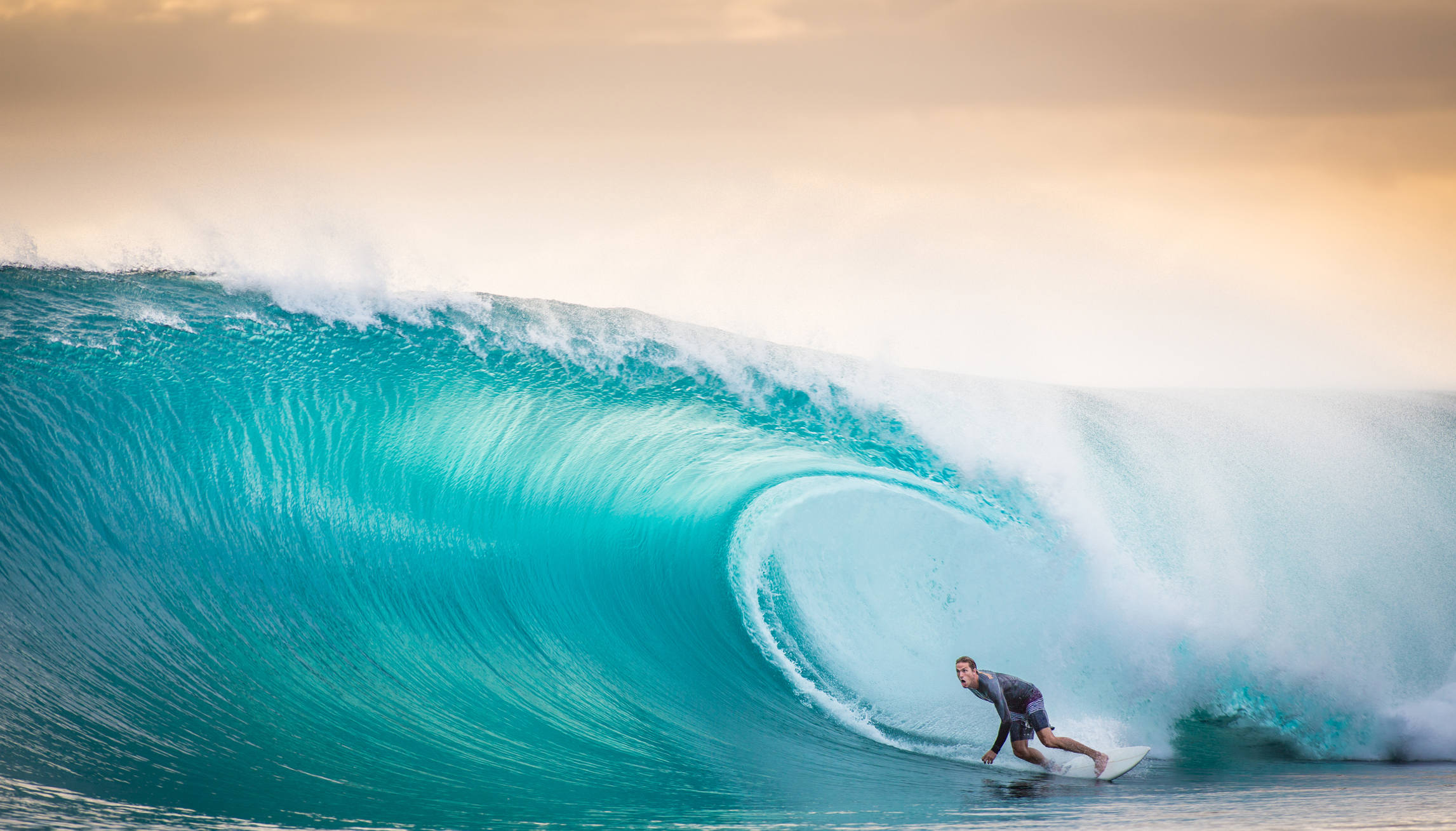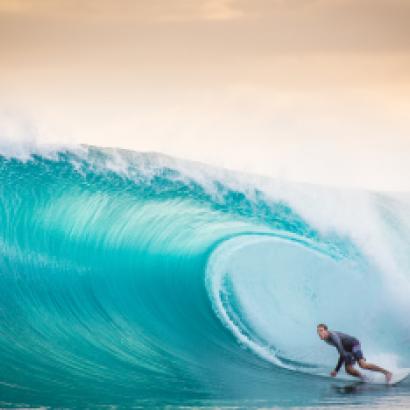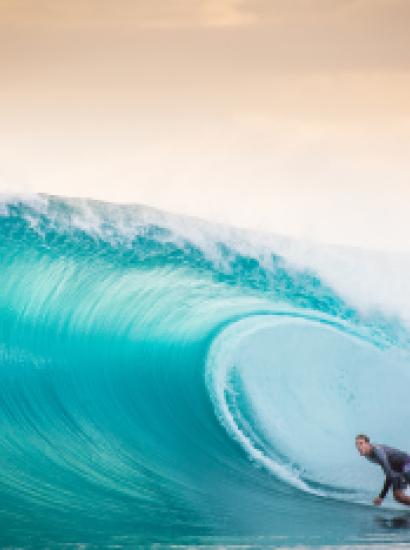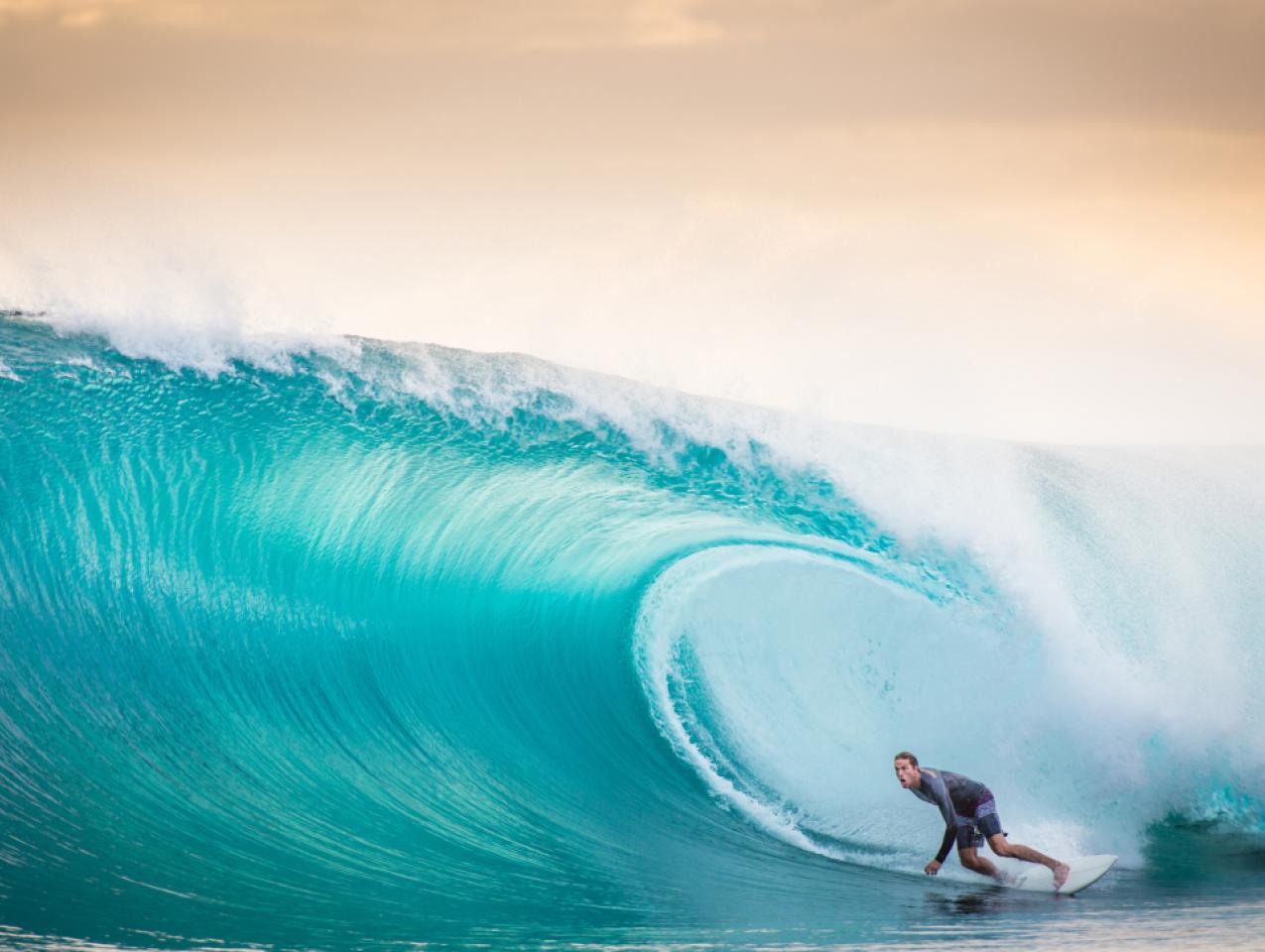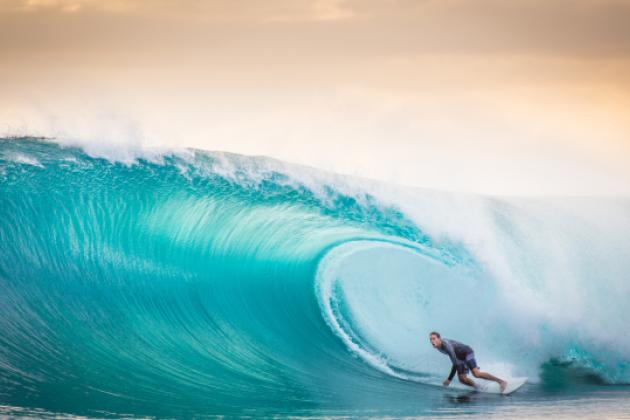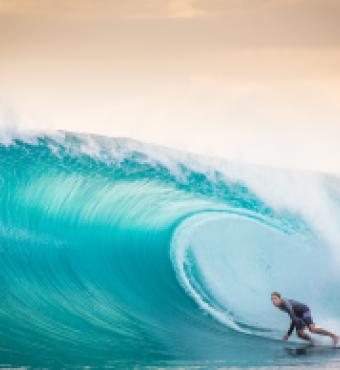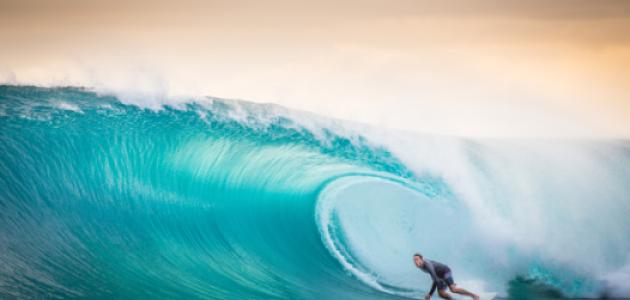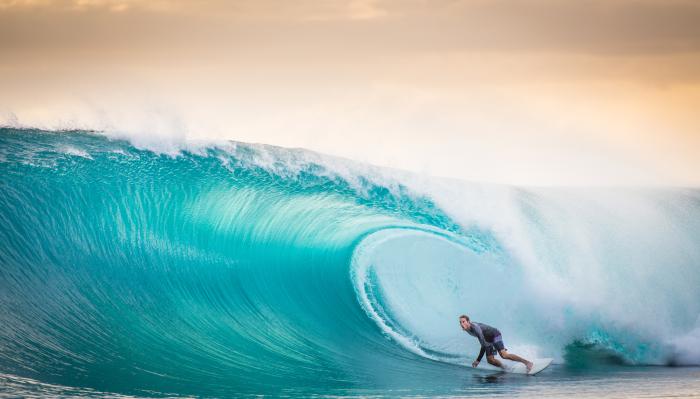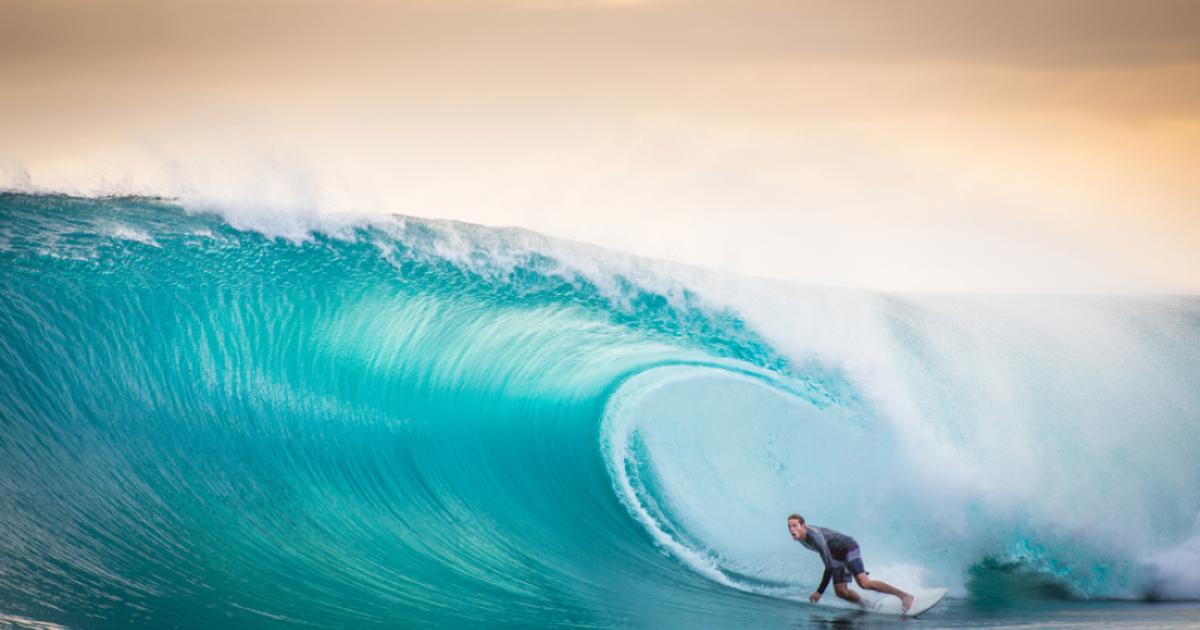- Politics, Institutions, and Public Opinion
- Campaigns & Elections
- State & Local
- California
- Law & Policy
- Civil Rights & Race
Rest assured that California’s state legislature is on the job and hard at work, settling such thorny matters as . . . deciding which athletic endeavor to designate as California’s “state sport.”
The choice: surfing.
Ok, so surfer dudes may be an image that comes to mind when thinking of California’s beaches and its 840 miles of coastline (in some upscale communities, you can try it indoors before you muster the courage to paddle offshore).
And it’s not as if this is the first time state lawmakers have delved into the designation game.
At last check, California has a state bird (the California quail), a state animal (the California grizzly bear— it’s on the California Republic flag), a state dance (West Coast Swing, a variation of Harlem’s Lindy Hop), a state fabric (denim), a state fish (golden trout), a state flower (the California poppy), and a state mineral (gold— no argument there, this is after all the “Golden State”).
Rest assured: California isn’t the only state with too many legislators with too much time on their hands. Thus we have New York’s state dog (working canines), Texas’ flying mammal (the Mexican free-tailed bat), and Idaho’s state vegetable (three guesses as to the identity of that—and the first two don’t count).
But back to California and its new official sport: in surfing parlance, should the good people of the Golden State be amped about the news or bail on it?
Moreover, what does it say about the Legislature’s big-picture vision and belief in climate change given that California released its fourth statewide climate assessment this week – a grim read which predicts that two-thirds of the Golden State’s beaches may be washed away by the century’s end thanks to rising sea levels. Should we be praising beach sports when the future suggest fewer beaches will exist?
In the meantime, here are my four concerns about going ahead with surfing as the state sport.
Originality. The legislator behind this idea, Democratic Assemblyman Al Muratsuchi, reportedly was “stoked” that his proposal saw the light of day. Muratsuchi’s reasoning: “No other sport represents the California Dream better than surfing— riding the waves of opportunity and living in harmony in nature.”
What the designation concedes: originality.
Hawaii did the same, making surfing its official state sport twenty years ago. That makes sense: the Aloha State is where surfing began. Yes, California refined the sport—wetsuit inventor Jack O’Neill is a great example— but it’s not necessarily quintessentially West Coast. Should California, which prides itself in its innovativeness, settle for imitation?
Currency. At this point, you might want to drown me out with Dick Dale’s “Pipeline” or Beach Boys’ oldies.
The key word: old.
“Surfin’ USA” was released in 1963, right about the time Frankie and Annette started their string of beach party movies. It’s not California’s official state song—that would be “I Love You, California” (sorry, Tony Bennett, Randy Newman and Tupac).
Is California as beach-centric it was in pop culture fifty years ago? Do a survey and see how many residents can identify Gidget or the original cast members of Baywatch.
One other way to judge surfing as part of California’s psyche: it’s prominence at the box office. The last California-based surfing movie to make it big at the box office was the 1991 cult classic Point Break. Yes there was a 2015 remake, but fourth-fifths of its lifetime gross has come from foreign viewership, whereas over half of the original’s is domestic.
Exclusion. To paraphrase Lt. Kilgore of Apocalypse Now fame (“Charlie don’t surf”), there are vast portions of California in which the locals aren’t driving around with a board strapped to the roof of their “Woodie.”
California consists of fifty-eight counties; only fifteen of them abut the Pacific Ocean. Those coastal counties account for about 21.6 million Californians— or roughly fifty-five percent of the state’s population.
But what of the Central Valley, the Inland Empire, Gold Country, and California’s desert communities— parts of the nation-state that don’t relate to the coastal communities in their political and social outlook? They don’t surf; they don’t necessarily relate to the sport’s lifestyle and culture. As such, giving surfing this accolade is but one more example of a telling divide in California—not north-south or Democratic-Republican, but coastal vs. inland.
Surfing a Bad Wave. Finally, the lowest-hanging fruit on the tree: questioning the direction lawmakers are taking California. Think of this as California as a “state of first’s.”
Earlier this week, Governor Brown signed a law that will make California the first state to let individuals charged with a crime to leave jail before trial without having to post bail. Its replacement: a system that holds the accused based on their risk level.
That’s a serious matter— a life-altering one, for all the wrong reasons, if a criminal were to be released and commit further crimes.
Unfortunately, there are other times when California reinforced its, shall we say, “colorful” reputation.
Thanks to a measure Brown signed last year, California is the first state to require pet stores to sell rescue animals. Stores can be fined $500 for each animal for sale that is not a rescue. That was a day after Brown signed a bill making California the first state to subsidize diapers for needy.
In 2014, Brown signed a bill making California the first state to require students on college campuses to receive active consent before all sexual activity.
And one last law Brown’s expected to sign—and it’ll invite a bad double entendre: making California the first state to bar full-service restaurants from giving out single-use plastic straws unless customers request them.
Collectively, these measures suggest two problems with California’s present existence: a full-time legislature that writes too many bills and lawmakers who exist on a diet of small-potato ideas.
Measures that are enacted can always be revisited. So here’s a suggestion as to an alternative official sport of California: water polo. Three reasons why:
First, California dominates the sport (USA Water Polo makes its home in Huntington Beach, aka “Surf City USA”). Dating back to 1969, every NCAA men’s championship team has been a California school; the same’s true for women’s title team, going back to 2001.
Second, it’s one of the nation’s fastest-growing youth sports. A state that claims to be futuristic should reflect parents’ changing attitudes, no?
Third—equality. Just as not all Californians surf, not all Californians necessarily swim. But it’s far easier to find a pool inland— and swimming lessons are more affordable— than it is to gas up and fight traffic to the shore.
I’d like to think this is the worst legislative suggestion regarding California. Buy in Sacramento, that’s a high bar to clear.







